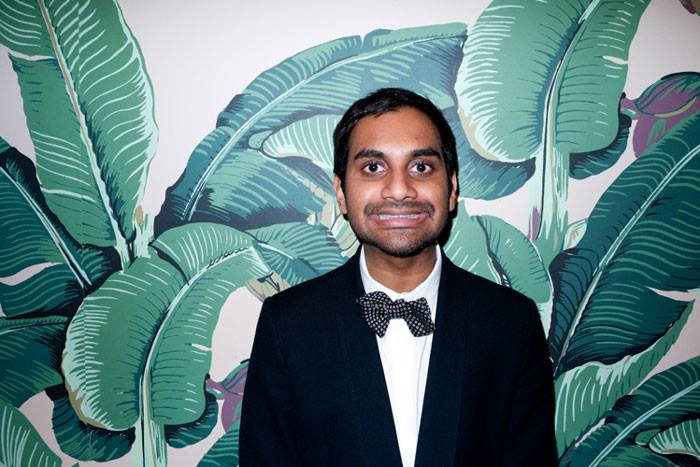
by Sylvia Abdullah – Follow @browngirlmag
The views and opinions expressed in this article are those of the contributors at Brown Girl Magazine but do not necessarily reflect the official policy or position of the publication. As a platform, we have decided not to take a hard stance on the recent account of the sexual encounter between a 22-year-old photographer named “Grace” and well-known comedian Aziz Ansari—instead, we are accepting guest submissionson the allegations and welcome all types of opinion.
I loved binge-watching ‘Master of None’ and seeing many of my non-brown friends watching, enjoying and discussing episodes like Parents (S1 E2), Indians on TV (S1 E4), and Religion (S2 E3). Growing up with mostly white friends, I’ve often played the role of the “friendly Muslim”— approachable, friendly, and just like you! I’m sometimes the only close friend with a Muslim background that people in my social circles have. I’ve received numerous comments like “I didn’t realize you’re Muslim, you’re so normal.” This is the role that Aziz plays for his mainstream audience- he finally makes brown and Muslim folks relatable to the masses. (Yes, I know he is an atheist, and the problem of only atheist, secular, cultural or other watered-down Muslim identities being portrayed is one that is articulated very well here).
For these reasons and many more, when Aziz Ansari won the 2018 Golden Globe for best performance by an actor in a television comedy, many of us embraced this historic first for an Asian American. But for an anonymous woman who calls herself Grace, the moment of his win was one that “‘started a new fire’” to tell the story of her sexual encounter with Ansari to babe and “validate this as sexual assault.”
Since her story was made public, I’ve been horrified at the use of the basest tropes of victim-blaming and “boys will be boys” to attack Grace, and the lengths to which people have gone to defend Aziz. Caitlin Flanagan conveniently uses race and a botched understanding of “intersectionality and all that” when she says “I thought it would take a little longer for the hit squad of privileged young white women to open fire on brown-skinned men.” Bari Weiss argues that a grown man who wrote a lengthy book overanalyzing modern hookup culture cannot be expected to understand neither enthusiastic consent nor both nonverbal and verbal no’s, essentially equating social skills mastered by most six-year-olds to “mind reading.” And these are only just a couple of ugly examples.
[Read More: ‘Brown Girl Magazine Staffers Respond to Aziz Ansari’s Sexual Misconduct Allegations’]
Aziz’s relatability and his prolific use of feminism, diversity and social commentary on romance have pushed him into his most important public role yet. He’s not just the friendly Muslim, he’s the friendly guy! The short, goofy dude who usually didn’t get the girl in romcoms of yore. He calls himself a feminist. He’s adorable. You’re rooting for him. Didn’t you see his #TimesUp pin? How can you not defend your buddy?
This moment is critical because Aziz is the face of the everyday, boy-next-door, friendly guy accused of sexual misconduct. His accusation brings this close—apparently too close—to home. Brown women and men should not be guilted into defending Aziz just because of the dearth of relatable brown guys in media. Women shouldn’t disregard Grace’s story simply because we can relate to having dozens of similar experiences; if Grace’s experience pales in comparison to the worst that we or other accusers have experienced, then that’s an even sadder reflection on our society.
Men who consider themselves to be good guys, feminists even, may be uncomfortable because they can relate to being the perpetrator in similar situations. Are we committed enough to force ourselves to consider that our roommate from college, our teenage kid brother, our work husband, our boyfriend, or even we ourselves can, and do, and have and will be perpetrators? Our society is rampant with aggressions and crimes spanning the full spectrum of sexual assault because, instead of believing the victims and accusers, we believe the people we relate to are not capable of being perpetrators.
If the #MeToo movement fails, it won’t be Grace’s fault no matter how passionately Ashleigh Banfield misdirects her anger towards her—it will fail because we were fairweather supporters of the movement who were unwilling to broaden our understanding of sexual assault.
 Sylvia is a native New Yorker who went to Los Angeles chasing sunshine. She is a graduate student pursuing a career in public health focusing on refugees and migrants. She thinks a lot about too many things at the same time, and sometimes tries to write some of it down.
Sylvia is a native New Yorker who went to Los Angeles chasing sunshine. She is a graduate student pursuing a career in public health focusing on refugees and migrants. She thinks a lot about too many things at the same time, and sometimes tries to write some of it down.




